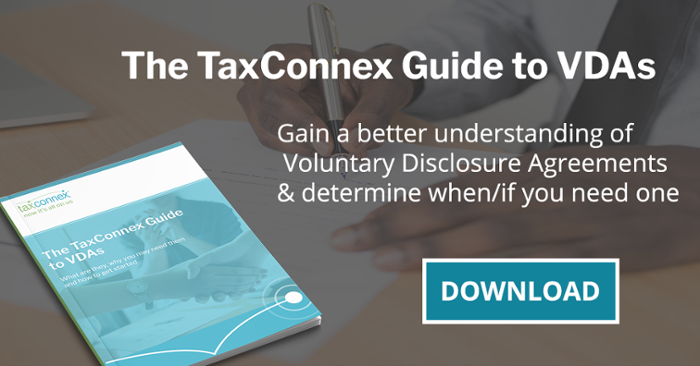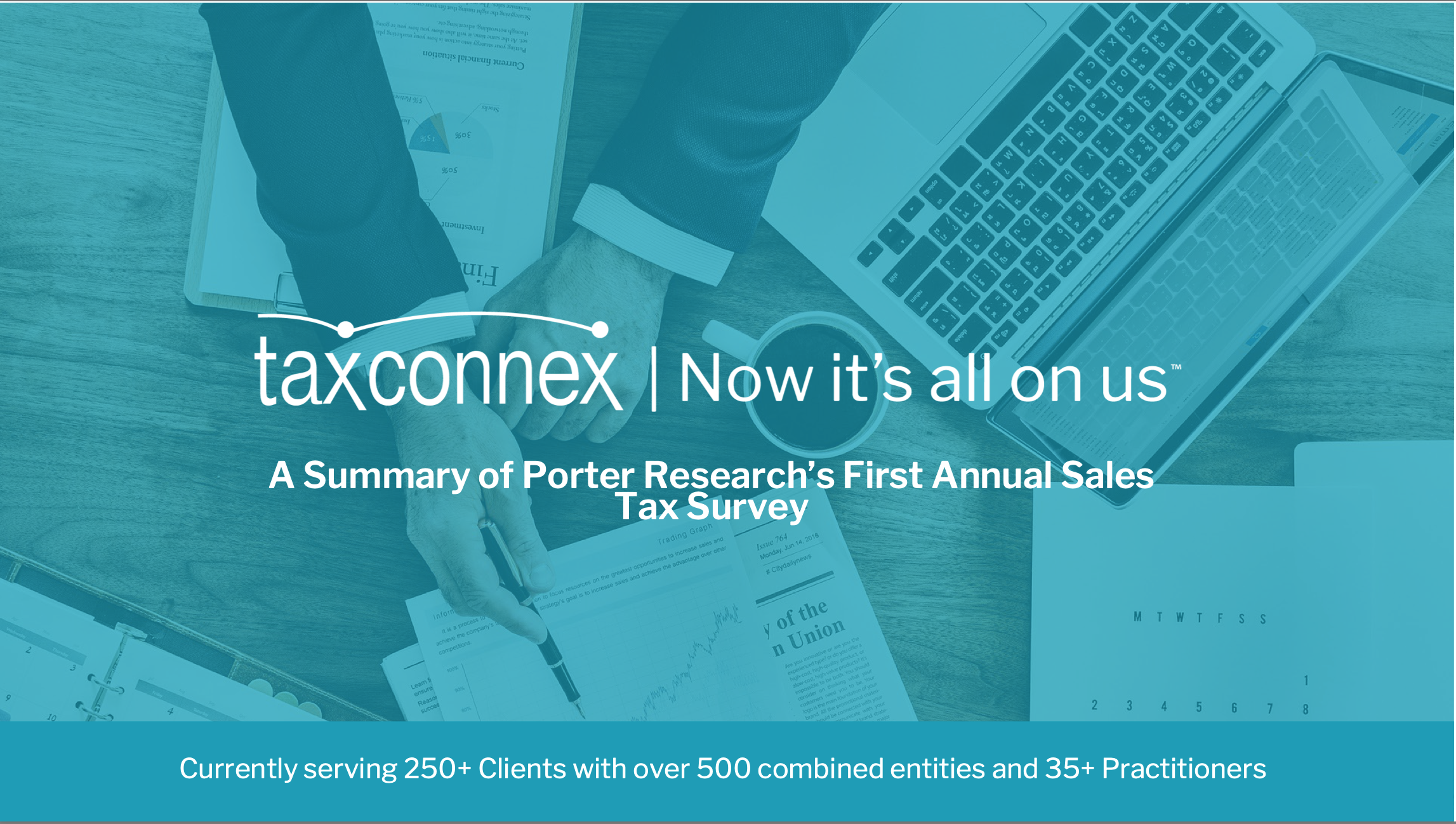.jpg?width=300&name=pexels-andrea-piacquadio-3760067%20(1).jpg)
Voluntary disclosure agreements (VDAs) can be an effective way to mitigate prior period sales tax exposure. They can also come with a lot of misconceptions.
If you don’t disclose back taxes and they’re unearthed through an audit, you could end up being assessed various penalties plus interest plus all tax due. And in extreme cases, the penalty could be in excess of 50% of the tax amount – potentially a criminal offense. With a VDA, in exchange for voluntarily reporting the tax due, states generally grant a waiver of penalty and a limited look-back period.
Before you consider a VDA, though, separate the facts from the myths.
Myth: A VDA is just a trick for states to collect more money from me. Not really. In fact, if you fall under the right qualifications, a VDA has 3 main benefits to a business
- Elimination of liabilities prior to the look back period (usually 3-4 years)
- Penalty abatement
- Establish the company as compliant for all prior periods for sales and use tax purposes
Myth: VDAs are hard to get. All states that impose sales tax have a VDA program to help alleviate the penalties of non-compliance and encourage businesses to comply. If you are a good fit to get a VDA, it shouldn’t be a difficult process to apply.
Myth: States don’t want to do VDAs. A state can’t find and audit every business that is not in compliance. States would prefer for businesses to voluntarily comply. A VDA allows the state to welcome new taxpayers and get cash up front for the previous 36 to 48 months of non-compliance. That taxpayer is now registered to continue collecting and remitting. The waiver of penalty and the limited look back is therefore equitable for both parties in a VDA.
Myth: It’s just a way for a state tax authority to find me. A VDA can establish your company as compliant for all prior periods for sales and use tax purposes. States can always audit the VDA periods, but so long as there was no material or intentional misstatements of fact, the state will not audit beyond the look-back period. Interest will still be due.
Myth: I don’t need this now, I can always register for a VDA later. Not always the case. There are two main qualifications for your business to be accepted into a VDA program. You cannot have already registered in the state and you cannot have already been contacted by the state for an audit or for questions about your sales/use tax exposure. If either of these events occur, you are no longer eligible for the limited look-back or penalty abatement.
Sales tax is confusing and it’s not getting any easier. If you have more questions on VDA’s, compliance, surviving a sales tax audit or sales tax nexus, contact us – when you work with TaxConnex, sales tax is all on us.
Looking for more information on VDAs? Download our white paper – The TaxConnex Guide to VDAs







.png?width=1200&height=628&name=2023%20logo%20with%20SOC%20and%20clearly%20rated%20(2).png)